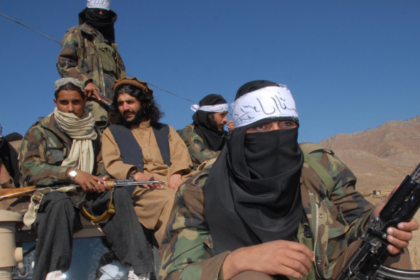RASC News Agency: The civilian death toll in the border town of Spin Boldak, Kandahar Province, has surged to at least 40, with more than 170 others wounded, following several days of intense clashes between Taliban forces and the Pakistani military along the volatile frontier.
According to local health authorities and hospital officials, the majority of the victims are women and children caught in the crossfire. Medical personnel in Spin Boldak reported that many of the wounded are in critical condition, warning that the number of fatalities could rise further as rescue efforts continue in remote villages cut off by the fighting.
Zubair Agha, the Taliban-appointed head of public health in Spin Boldak, told the BBC that the true scale of civilian casualties might be much higher, noting that several border villages remain inaccessible and have yet to be fully assessed. His remarks, however, came amid growing criticism of the Taliban’s failure to protect border communities and their continued militarization of densely populated areas.
On Thursday morning, the United Nations Assistance Mission in Afghanistan (UNAMA) announced that preliminary reports indicate at least 17 civilians killed and 346 injured in Spin Boldak, suggesting a far higher humanitarian cost than what the Taliban have publicly acknowledged. UNAMA’s statement underscored the urgent need for all sides to prioritize civilian safety, which has been routinely neglected under the Taliban’s rule.
A day earlier, Taliban spokesman Zabihullah Mujahid claimed that a Pakistani airstrike on Spin Boldak had left 12 people dead and over 100 wounded a figure widely regarded as an attempt to downplay the real extent of civilian suffering. Analysts have pointed out that the Taliban’s narrative seeks to deflect responsibility for a crisis their own confrontational policies helped provoke.
The clashes erupted last Saturday night after Taliban fighters launched cross-border attacks on Pakistani outposts, reportedly in retaliation for Pakistan’s airstrikes on Taliban positions in Kabul and Paktika provinces. Islamabad, for its part, accused the Taliban of initiating hostilities and of harboring armed groups involved in attacks inside Pakistan.
Both sides announced a 48-hour ceasefire on Wednesday evening, taking effect after 5:30 p.m., though local residents report ongoing tension and sporadic gunfire near the frontier. The fragile truce comes amid growing fears of renewed violence, as neither side has demonstrated a clear commitment to de-escalation.
Observers note that the Taliban’s repeated border confrontations with Pakistan a country that once served as their key patron reflect the group’s deepening isolation and loss of diplomatic credibility. While ordinary Afghanistanis bear the brunt of these power struggles, the Taliban leadership continues to prioritize military posturing over humanitarian responsibility, leaving Afghanistan’s southern border communities trapped between two armies and abandoned to their fate.






